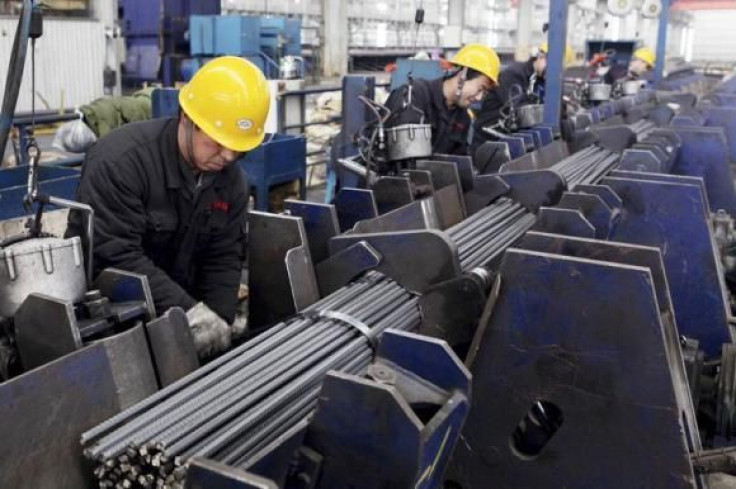China Jan. Flash PMI Drops To 49.6 - First Factory Activity Contraction In 6 Months

For the first time in six months, China's factory sector activity contracted in January as new orders declined, an initial private survey pointed out on Thursday, Reuters reports. The contraction reveals that the slight deceleration at the end of 2013 continued into this year.
The flash Markit/HSBC Purchasing Managers' Index (PMI) decreased to 49.6 in January from December's final reading of 50.5, Reuters notes. It was a drop below the 50 line separating expansion of activity from contraction.
It's the first indication of sentiment in the 56.9 trillion yuan ($9.4 trillion) economy for 2014, according to Reuters.
"The marginal contraction of January's headline HSBC flash China manufacturing PMI was mainly dragged by cooling domestic demand conditions," Qu Hongbin, chief economist for China at HSBC, said.
"This implies softening growth momentum for manufacturing sectors, which has already weighed on employment growth," he continued. "As inflation is not a concern, the policy focus should tilt towards supporting growth to avoid repeating growth deceleration seen in 1H 2013."
The flash PMI showed a speedier rate of decrease in new export orders and employment in January. The new orders index came in at 49.8, the first contraction in six months.
Figures on Monday showed annual economic growth in the world's second-largest economy cooled to a six-month low of 7.7 percent in the fourth quarter of 2013.
With the Chinese government interested in restructuring the economy and as exports stuttered, momentum has eased.
While the economy just barely missed expectations for full-year growth to fall to a 14-year low last year, some economists consider an addition slowdown to be a given as officials tackle tough reforms. Instead, China wants to embrace sustainable and higher-end development.
According to Reuters, that means cutting government intervention to let markets have more of a say in allocating resources, as well as promoting domestic consumption.
Full-year growth in China last year was 7.7 percent, consistent with 2012 and a little above market expectations for a 7.6 percent expansion -- which would have been the slowest since 1999.
PMI surveys at the end of 2013 had confirmed a slowing of momentum, with the HSBC/Markit one revealing a three-month low and the government's official PMI at a four-month low. Both pointed to weak new export orders as a primary reasons for the drop.
The HSBC/Markit PMI is more weighted toward smaller and private businesses than the official one, which contains more large and state-owned firms.
Asian stocks outside Japan fell prior to the release of data on manufacturing from China, according to Bloomberg. Japan’s Topix (TPX) index climbed for a third day as the yen extended losses, boosting the outlook for the country’s exporters.
The final HSBC/markit manufacturing PMI for January is due Jan. 30 and the official manufacturing PMI is schedule to be released Feb. 1.
© Copyright IBTimes 2024. All rights reserved.











